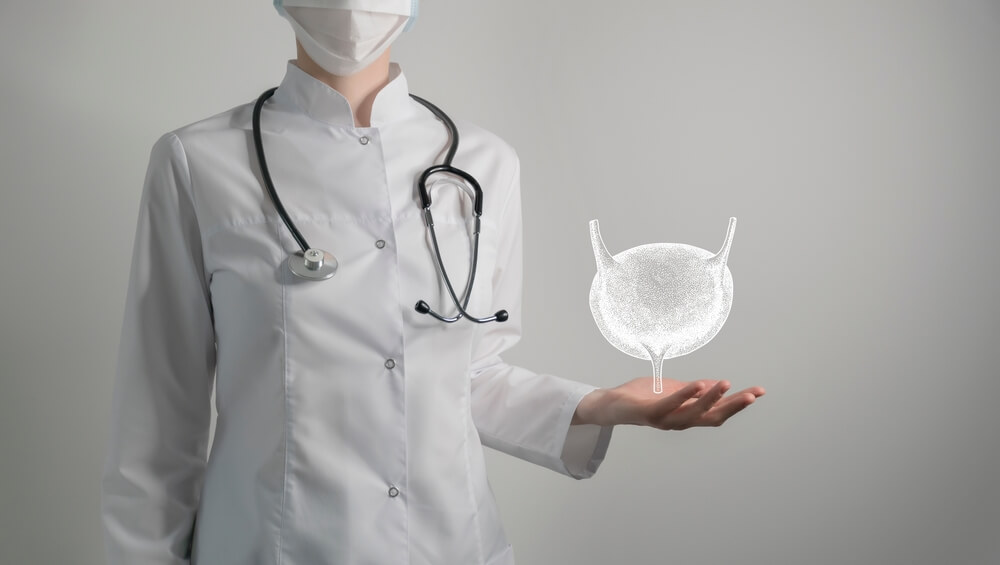A profound yet often underdiscussed transformation, childbirth, has a lasting impact on a woman’s body. Among these changes, pregnancy-related incontinence or postpartum urinary incontinence perhaps figure as some of the less appreciated changes. A delicate topic largely relegated to hushed conversations on motherhood, bladder weakness after childbirth is far more prevalent than many realize.
Imagine this scenario. You are enjoying motherhood, but every time you sneeze, cough, or laugh too hard, you leak. That is bladder weakness, a common problem for many women post-pregnancy. It’s postnatal urinary leakage, an aspect of bladder control after childbirth that garners little attention partly due to the stigma associated with incontinence.
Despite its common occurrence, it is important to know this is not a permanent or untreatable predicament. There are different medical facilities and experts, such as ACE OBGYN, who offer support to women going through this condition. Childbirth-induced incontinence is effectively manageable, with various treatments available ranging from simple lifestyle changes to medical interventions.
Throughout the following discourse, we’ll delve deeper into postpartum pelvic floor dysfunction, its causes, its impacts, and most importantly, practical solutions and treatments you can seek to alleviate and conquer post-pregnancy bladder issues.
Detailed Examination of Bladder Issues Post-Pregnancy
As natural and beautiful as maternity is, it brings about a myriad of changes in a woman’s body. Bladder control after childbirth is often compromised, ringing true the reality of post-pregnancy bladder problems. Now, while the idea seems terrifying, understanding the mechanics behind it can provide reassurance, and more importantly, point towards viable solutions.
Scientific Explanation of Why Incontinence Manifests and Which Specific Muscles are Affected
Incontinence after baby stems from the strain pregnancy and childbirth put on your pelvic floor. Pelvic floor muscles act like a sling, supporting your bladder, bowel, and uterus. During childbirth, these muscles stretch and may weaken, leading to postpartum urinary incontinence. This is often why we hear of post pregnancy bladder leaks, they are a direct result of weakened pelvic floor muscles.
Moreover, hormonal changes during pregnancy can also contribute to bladder weaknesses. The hormone relaxin, which relaxes the body’s muscles in readiness for childbirth, can also slacken the muscles in your urinary tract. Combined with the weight of a growing baby pressing down on the bladder, this can contribute to pregnancy-related incontinence even before the strains of labor take effect.
Emotional Consequences of Dealing with Incontinence and How it Affects Daily Life and Self-Esteem
Motherhood alone is a challenging journey. Add urinal incontinence to that, and daily life may begin to feel daunting. The emotional toll postnatal urinary leakage takes on new mothers can be considerable. Dealing with leakage whenever you cough, sneeze, or even during exercise can lead to anxiety and influence self-esteem. This fear of public embarrassment may lead to social isolation, avoidance of physical activities, which can eventually lead to depression.
Post-birth urinary issues and related concerns can also give birth to an array of body image issues. Many women may feel less feminine due to incontinence and might struggle with sexual intimacy issues with their partner. However, it is important to remember that bladder control after childbirth is a common problem faced by many, and there are numerous options available for its treatment and management.
Contemporary Treatment Methods for Post-Pregnancy Bladder Weakness
Transforming the narrative around postpartum urinary incontinence requires not just understanding but also action. Fortunately, medical science offers a wide range of treatments designed to tackle bladder control after childbirth. Let’s explore them!
Overview of Non-Invasive Treatments – Lifestyle Changes, Exercises and Medication
Non-invasive treatments are often the first line of action against post-pregnancy bladder issues. A significant part of managing postnatal urinary leakage is lifestyle changes. These may include:
- monitoring fluid consumption,
- adopting bladder-friendly diet plans – such as avoiding caffeinated or alcoholic drinks,
- managing weight, as obesity can put additional pressure on the pelvic floor.
Pelvic floor muscle training or Kegel exercises are another essential component in managing bladder control after childbirth. They work to strengthen the weakened pelvic muscles, reducing leakage frequency and severity. Continual practice can result in noticeable improvements. Additionally, medication can be used in some cases to control post-pregnancy bladder leaks. Anticholinergic drugs help control overactive bladder symptoms by calming involuntary bladder contractions.
Discussion on More Advanced Treatments – Surgeries, Therapies, and their Efficacies
For some women, incontinence after baby may necessitate more comprehensive treatments. Urotherapy, including biofeedback and electrical stimulation, is often employed to improve bladder strength and functionality. The therapy leverages the body’s signal systems to create awareness and allow more control over bladder functions. When these methods fail to provide substantial improvement, surgery can be considered.
There are different types of surgical procedures for treating bladder control issues post-childbirth. These largely depend on the type of incontinence – stress, urge, or mixed – and patient’s overall health. While it may seem daunting, remember that addressing postpartum pelvic floor dysfunction is crucial for improved quality of life.
A specialized health professional can guide you through potential treatments best suited to your individual needs. It is never too late to seek help and regain control over your body post-pregnancy.

Personal Empowerment for Post-Pregnancy Bladder Issues
Motherhood and bladder control indeed possess a unique relationship, often challenging but not insurmountable. Empowering oneself to seek the right help and implementing effective coping strategies are crucial steps towards managing post-pregnancy bladder issues.
Steps on How to Seek Help – The Importance of Speaking to Healthcare Professionals
The first step towards managing postpartum urinary incontinence is breaking the silence. Open communication about your bladder issues after childbirth with healthcare professionals is essential. Professionals are not only equipped with the knowledge to advise on the best course of action but can also provide much-needed reassurance during a sensitive time.
Obtaining an accurate diagnosis of the extent of postpartum pelvic dysfunction will guide the treatment process. It is crucial to discuss your symptoms, lifestyle, and expectations with the healthcare provider honestly.
Strategies to Cope and Live Fully Despite Having Incontinence
Coping with incontinence after baby requires a blend of practical strategies, resilience, and acceptance. Amid adjusting to new routines with your baby and navigating post-pregnancy urinary issues, equipping oneself with the proper tools is indispensable. In addition to medical treatments and interventions, psychological strength plays an equally important role.
Joining support groups, online or offline, can provide a sense of community, reducing feelings of isolation. Sharing experiences and coping mechanisms with others who are dealing with similar situations can be empowering. Daily stress management techniques such as mindfulness, yoga, and progressive muscle relaxation can also be helpful in managing anxiety related to incontinence.
Moreover, being educated about and prepared for contingencies, such as carrying spare clothing or knowing the locations of restrooms, can ease day-to-day stress. Remember, struggling with bladder control after childbirth does not diminish the joy of motherhood. It’s a common situation for many women and with the right help and approaches, it can be managed effectively, leading to a happier and healthier post-pregnancy experience.
Regaining Bladder Control: Perseverance and Empowerment
As we have cultivated an understanding, the issue of bladder weakness or incontinence after childbirth is far greater than often realized. Pregnancy-related incontinence is not a silent burden women should bear alone. It is a real concern, affecting millions of new mothers globally, and it requires recognition, discussion, and open conversation. Postpartum urinary leakage can impact daily life, bringing forth emotional distress and lower self-esteem. Yet, it is important to remember that with the advancing medical field, this is a manageable issue.
Noninvasive treatments ranging from lifestyle changes to pelvic-floor exercises and medication form the first line of defense. For cases where these methods don’t show substantial results, more advanced interventions like urotherapy, biofeedback, and even surgical remedies are available. Mothers dealing with post-birth bladder problems have a variety of options, each viable and within reach.
In this journey towards regaining bladder control, seeking help is the first but most critical step. Healthcare providers armed with extensive knowledge and experience are allies, providing both medical aid and comfort during this challenging yet surmountable phase. Whether it is through an open conversation with your doctor, joining a support group, or exploring treatment options, the journey to overcome urinary incontinence is one you don’t walk alone.
Remember, hope exists. You are not alone in this, and with determination, perseverance, and the right help, bladder control can once again be part of your normal. Our expert team is always at your disposal, so feel free to call us today and speak to a medical professional who can hold your hand during the journey to recovery.

